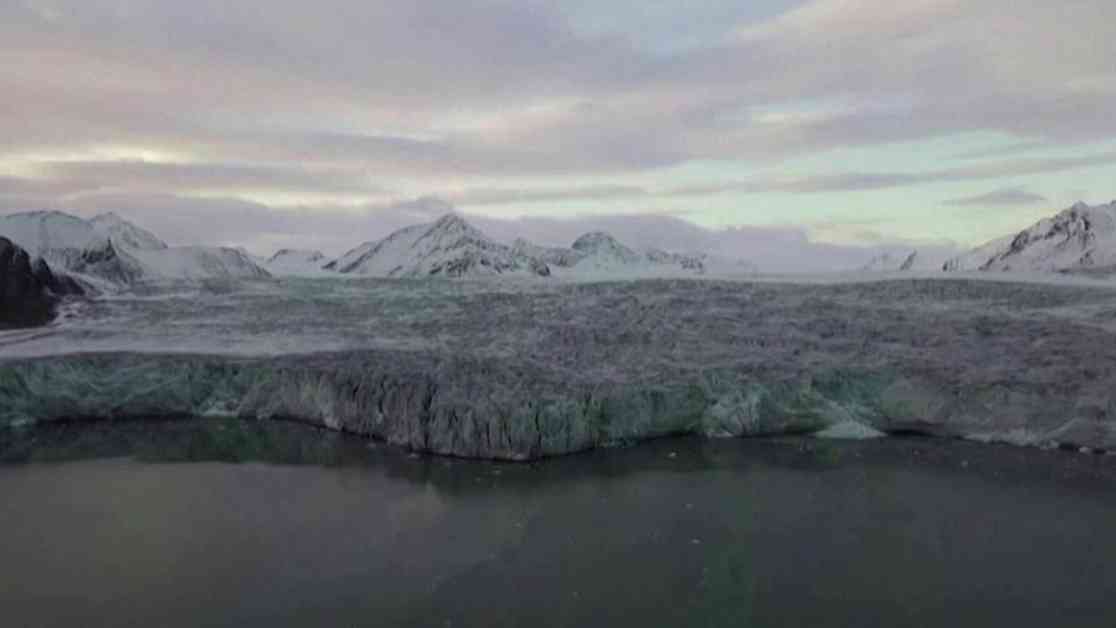The article is about how scientists are studying when ice sheets will start collapsing using data from satellites, ice cores, and the ocean floor. The results are pointing towards a catastrophe far beyond expectations. Could this mean the fate of many countries will turn into the lost city of Atlantis? The research shows that the 1.5-degree limit is not a “safe threshold,” as even the current temperature of 1.2 degrees could trigger rapid glacier retreat. When the Greenland and Antarctic ice sheets melt, they contain enough freshwater to raise sea levels by a total of 65 meters, posing an existential threat to all coastal areas.
Every year, 370 billion tons of ice are melting, leading to a doubling of sea level rise in the last 30 years. Experts warn that sea levels could rise by up to 1 centimeter per year by 2100 and could exceed 1 meter within the century. This scenario would force millions of people worldwide to migrate and cities to be submerged underwater. The research argues that to prevent glacier melt, the temperature increase caused by carbon emissions should not be kept at 1.5 degrees but reduced to 1 degree. However, achieving this goal seems quite challenging given the current situation of continued fossil fuel use.
In the face of these alarming findings, it is clear that urgent action is needed to mitigate the effects of climate change. The study underscores the importance of reducing carbon emissions and transitioning to renewable energy sources to prevent further temperature rise. The consequences of inaction are dire, with millions of lives and livelihoods at stake. It is crucial for policymakers, businesses, and individuals to work together to address this global crisis before it is too late. The fate of our planet and future generations depends on the decisions we make today.
As the world grapples with the reality of climate change, it is essential to prioritize sustainability and environmental protection in all aspects of life. From reducing waste and conserving resources to advocating for policy changes, everyone has a role to play in combating this crisis. The urgency of the situation cannot be overstated, and it is up to each and every one of us to take responsibility for our actions. By working together towards a common goal of preserving our planet, we can ensure a brighter future for generations to come. Let’s not wait for disaster to strike before we take action – the time to act is now.











